Bank Holiday breaks in the Lake District
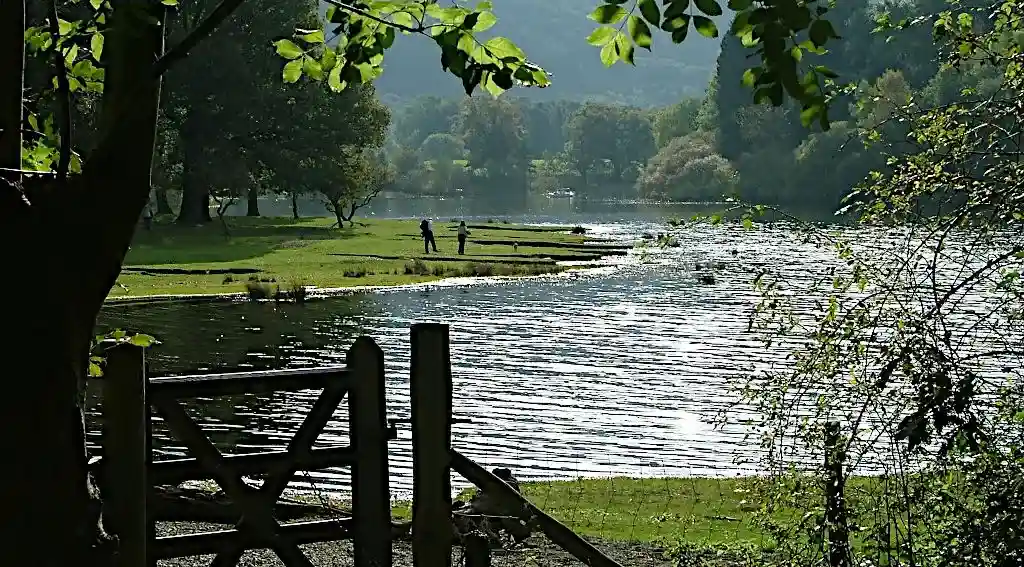
The Lake District: Peaceful tranquility
There is a great opportunity to slow down, take stock and find serenity. Who says that going on holiday needs to involve crowds, being stressed, and running around between destinations? Bank Holiday breaks in the Lake District are sure to show you a whole new side to a well-loved destination.
With lots of water, cosy landscapes, and plenty of opportunities to relax, there's plenty of time to enjoy what this part of the country has to offer.
Just imagine strolling along the spacious lakeside shores of the Lake District, a gentle breeze cooling your forehead while you're ready to take the next step.
Science supports the soothing effect of water. 1 Being close to water, spending time on lake shores, rivers, and seafronts (or even better: living close to a lake), can have a positive effect on your health by reducing blood pressure, and heart rate and stress levels. 2
CONTENTS
- 1. Lake District Bank Holiday breaks
- 2. The lakes of the Lake District
- 3. Ullswater
- 4. Derwentwater / Derwent Water
- 5. Bassenthwaite Lake
- 6. Windermere
- 7. Coniston Water
- 8. Buttermere
- 9. Wast Water
- 10. Grasmere lake
- 11. Lake District: Weather and climate
- 12. More great UK Bank Holiday breaks
- 13. Explore more of the Lake District
So what are you waiting for?
Spend your May or August Bank Holiday Break in the Lake District!
The Lake District is located in Cumbria, just south of the Scottish border and within the heart of the northwest England.
It's quite an alluring and popular holiday destination. It's a place of breathtaking beauty, with idyllic villages, calm waters and spectacular views of rolling hills and mountain peaks.
Especially if you don't want to spend your precious days off too far away, this area is great for a "staycation" during any Bank Holiday. The scenic lakes, mountains, and fells in the Lake District National Park are just a short drive away on the M6.
Envision sitting by a serene lake that was formed by the slow but mighty forces of glacial erosion tens of thousands of years ago, a gentle wind rustling the leaves of trees and bushes, while you rest your eyes on heath-covered mountains and a sense of relaxation pervades your senses
The Lake District National Park was established in 1951, extended in 2016 and covers an area of 2,362 square kilometres (912 sq mi). It is both a National Park and UNESCO World Heritage Site.
This place will take your breath away - and it will make you breathe deeply.
Lake District Bank Holiday breaks
Places to go, things to see
The spectacular landscape was formed by the slow but mighty forces of glacial erosion tens of thousands of years ago. Its natural beauty has inspired poets like William Wordsworth to write poems and travel guides for tourists: In 1835, Wordsworth (who violently fell in love with the beauty of the Lake District) published "A Guide through the District of the Lakes in The North of England with a description of the Scenery, &c. for the use of Tourists and Residents."
Other English writers like Beatrix Potter and John Ruskin also drew artistic inspiration from the untouched beauty of the Lake District, although they (most probably) haven't been to the Lake District on a May Bank Holiday break...
The lakes of the Lake District
Waters and Lakes galore
Ever wondered why the Lake District is called the Lake District?
Here are 9 helpful hints...
Ullswater
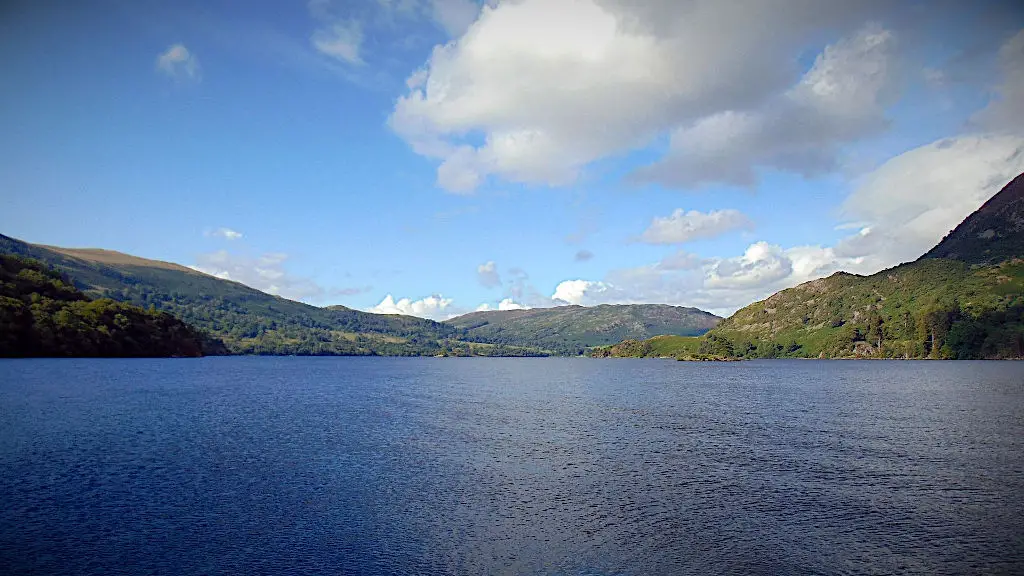
Situated in the northwest corner of the National Park, Ullswater is framed by some of the most rugged and spectacular mountains in England: Helvellyn and Fairfield. It is the second largest natural lake in England by surface area, which makes it a popular spot for paddleboarding and sailing.
Derwentwater / Derwent Water
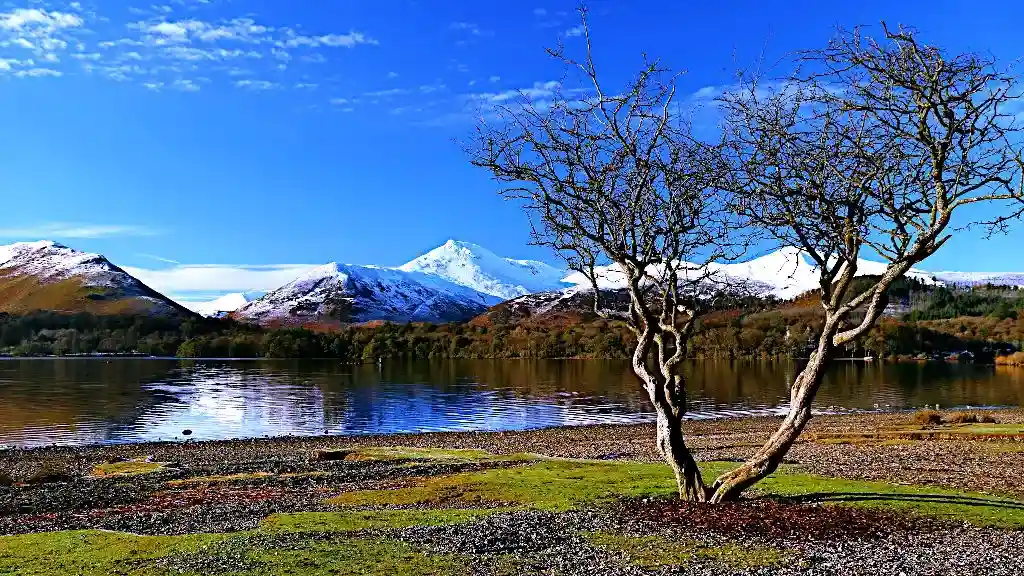
The lake Derwentwater as well as the village nearby are best known for their association with the Wordsworth family. William Wordsworth and his sister Dorothy regularly holidayed in the area and lived at nearby Rydal Mount from 1813 until he died in 1850.
The rather broad lake itself is surrounded by wooded hills, which offer recreational walks for those looking for a bit more adventure than just walking along the lake shore.
Bassenthwaite Lake
Bassenthwaite Lake lies between Keswick and Cockermouth.
Just like so many lakes in the District, it has the same long and narrow shape, resulting from erosion during the last glaciation.
Visitors love the serenity and quiet atmosphere, and particularly love the great walks along the shoreline and on the nearby fells.
Windermere
Windermere is the largest natural lake in England.
To the poet Wordsworth, the lake appeared to be "like a vast river, stretching in the sun." 3
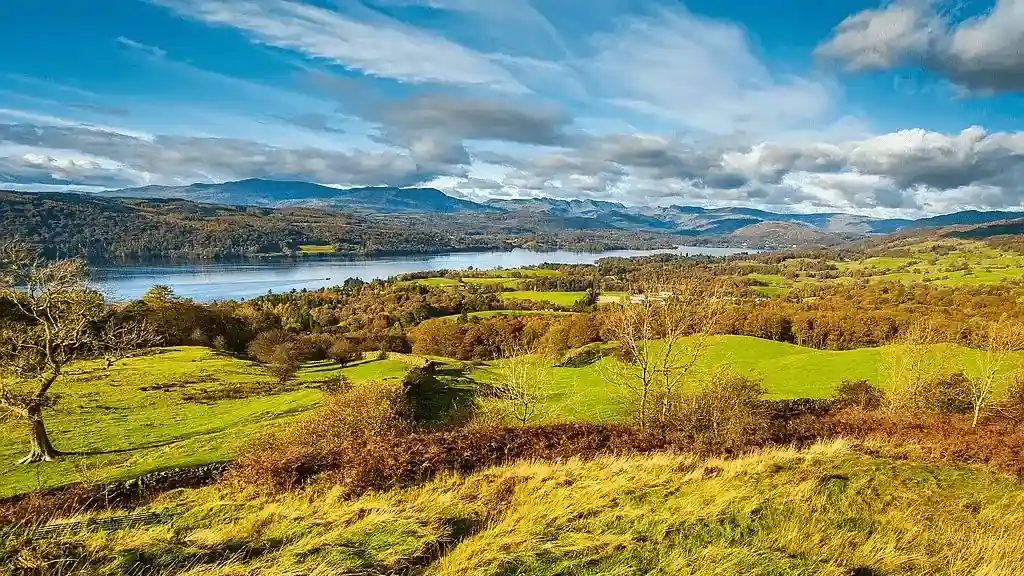
Today's visitors are no less thrilled about its natural beauty, but also praise the myriad mountain walks, the local food locations, the self-drive boat trips and lake cruises.
Since it attracts quite many tourists, particularly during the Bank Holiday breaks in May and August, you might struggle a bit finding a parking space during tourist season unless you come early. Off-season and winter are also worth a try and less busy.
Coniston Water
Coniston Water is number 3 in size in the Lake District and great for a swim, canoeing and kayaking.
If you want to watch the beautiful scenery pass by slowly, just take one of the circular boat cruises available on Coniston Water. You can even hop on / hop off and combine the boat tour with a walk on one of the many walking routes around the lake.
Buttermere
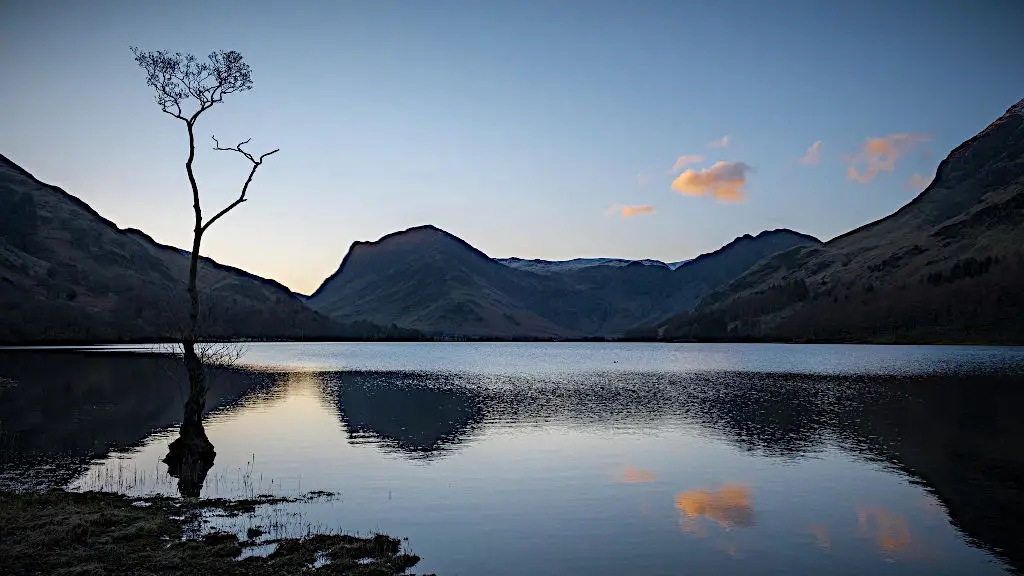
Buttermere is one of the smaller lakes in the District, crouched between the fells of the High Stile range and Robison to the northeast.
It's easy to walk the perimeter of the lake. It will take you between 2-3 hours, but the scenery will leave you with a lifetime's worth of memories.
Wast Water
In England, no other lake is deeper than Wast Water – almost 80 metres deep! And, quite fittingly, the lake is situated amidst some of the highest mountains in England: Scafell Pike in the east and Great Gable, north-east of the lake.
What a combination! This will make for breathtaking views (if the weather is not a little off on the day of your visit. But then, it's always advisable to bring rainproof clothing).
Grasmere lake
On the shores of Grasmere lake, tourists flock to see Dove Cottage, one of the homes of William Wordsworth and his sister, Dorothy, and his final resting place, St Oswald's Church. It's a place that draws thousands of visitors each year and there are almost endless possibilities for accommodation, shopping and visits to the local pubs, book stores and gardens. Particularly famous is the local Grasmere Gingerbread, which is still baked after the original mid-19th century recipe.
Lake District: Weather and climate
2021 average temperatures
The rolling hills and high mountains of the Lake District make for some of the rainiest parts of the UK, with an average of >3200mm of rain each year.4
Thanks to the effects of the sea, the Lake District has milder winters and cooler summers than would otherwise be expected at this latitude.
The Lake District terrain can be quite rough and physically challenging, and weather conditions can change quickly and dramatically, especially up in the hills.
Please check for current weather hazards and mountain weather forecast before heading up into the mountains.
Therefore, the Lake District Park administration asks visitors to come prepared.
For better planning of your short break in the Lake District, check out Infos & tips on how to be safe and how to enjoy your stay sensibly.
Please be "Lake District kind" on your Bank Holiday breaks in the Lake District.
| Temp. | J | F | M | A | M | J | J | A | S | O | N | D |
|---|---|---|---|---|---|---|---|---|---|---|---|---|
| Max | 8 | 10 | 15 | 15 | 19 | 21 | 25 | 21 | 24 | 16 | 12 | 11 |
| Min | -5 | -7 | -2 | -4 | -2 | 5 | 8 | 8 | 6 | 1 | -3 | -2 |
More great UK Bank Holiday breaks
Explore more of the Lake District
-
A "multi-country investigation focused on the recreational use of blue spaces and their relationship with human health." bluehealth2020.eu ↩︎
-
"Exposure to natural environments can have calming and stress-reducing effects on humans." National Library of Medicine 2019 ↩︎